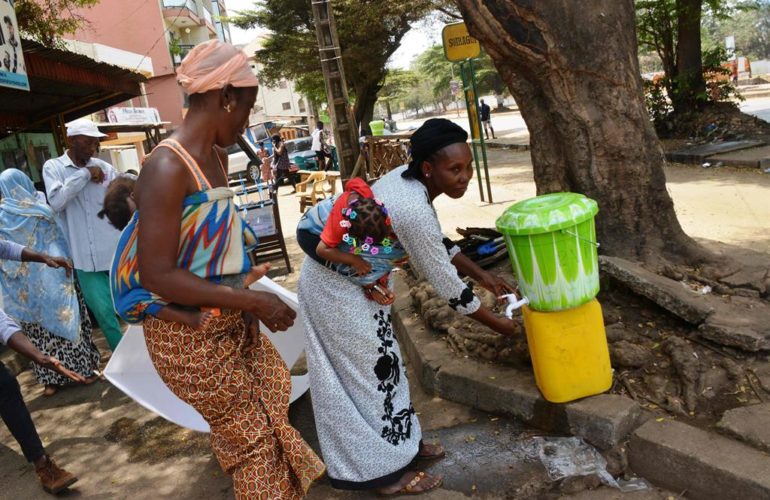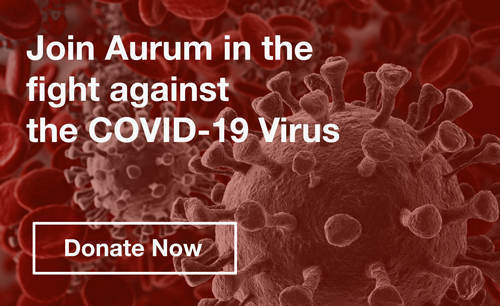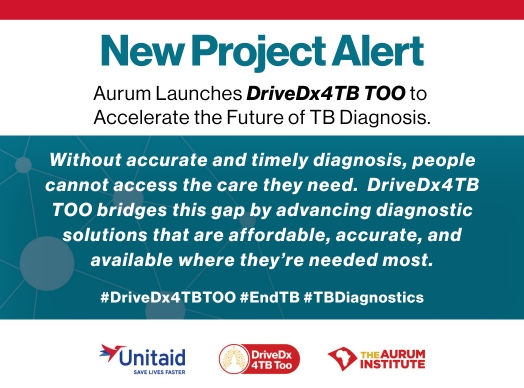This article was originally published in https://ehospice.com on 12 May 2020.
While Africa may count its blessings for the late onset of the pandemic on its shores due to various reasons, it is advisable to take note of lessons learnt from other epicentres of the pandemic. One of the primary lessons learnt is the fact that human behaviour largely determines how quickly or how slowly COVID-19 spreads, writes Thobekile Finger Aurum'sTechnical Director: Health Programs.
Onset of the Pandemic
There is, therefore, need for African leadership and health gatekeepers to be strategic and ask the question: “Are communities in Africa taking the COVID-19 pandemic seriously enough to adjust their daily activities and behaviours for the prevention of coronavirus infection?”, and to take the requisite steps and actions to prevent widespread infections, rather than wait for the onset of huge disease burden to awaken.
Africa is an enormous continent, and while responding to the pandemic, the context of each region is critical. Different cultures and economic factors impact greatly on the approaches and interventions. Thankfully, there are a number of general behaviours that are now acknowledged and known to exacerbate the spread of coronavirus across different socio-economic settings. These can be adopted.
The COM-B mode is a behaviour change model that states that the starting point for a successful behaviour change strategy is to state as clearly and specifically as possible what changes are required. For any behaviour change to occur, people need capability, opportunity and motivation.
- Capability involves psychological (e.g. the knowledge and skill to perform an action) as well as physical (strength and stamina)
- Opportunity involves both social (e.g. norms) and physical (e.g. resources) facilitators;
- Motivation involves both “reflective” (e.g. conscious decision-making) and “automatic” (e.g. emotion and habit) processes.
This model is well-known and accepted in social and behavioural change studies, and in this context, it leads to the question: Do African populations have capability, opportunity and motivation to treat the deadly COVID-19 pandemic seriously, and adjust their daily activities, cultural practices and behaviours for its prevention?
While some values are universal and are recognizable across African cultures, it would be inaccurate to assume that there is homogeneity of behaviours and cultures among all African nationalities. But the notion of “Ubuntu” and “communalism” is of great importance and a fairly common thread on the continent. This often includes close family and community ties, often involving many group activities that are carried out in fairly large gatherings. The COVID-19 pandemic seems to be challenging this norm, by isolating not only nations from one another through closure of national borders, but also isolating communities and indeed families and individuals due to restricted movements in-country. This calls for the need to build alternative forms of communality inside communities during the COVID-19 pandemic, in order to safeguard the health of citizens. How can we continue the concept of ubuntu, and the mutual social support structures in our communities in the wake of COVID-19 without exposing ourselves to infection?
Language: Ordinary men and women in the village might struggle to identify with any of the COVID-19 messaging e.g. terms like “social distancing”, “quarantine” and “self-isolation”. Appropriate information and education campaigns must be structured at very local levels as a matter of urgency, so that each population can develop the relevant vocabulary that is positive and effective. E.g. The Uganda Ministry of health has initiated the “Tonsemberera”campaign, a local word meaning “don’t come near me” or “keep your distance” as a way of localising a seemingly foreign idea of staying at least 2 metres apart at any one time.
Law enforcement
Together with the information and education, there is need for appropriate law enforcement to ensure compliance with prevention guidelines, e.g. minimum standards of sanitisation for public places, controlled access to markets, supermarkets, and other high-risk places. Without law enforcement measures would communities voluntarily lockdown? Across the world, police and army personnel have been deployed to enforce the movement of people outside their homes.
In addition, because the pandemic has caught many nations unawares, including traditional donor nations, these initiatives need to be funded from local national resources.
Tackling Misinformation
he importance of tackling misinformation cannot be over-emphasised. Community based organisations can be very instrumental in tackling misinformation if adequately capacitated. Experience in HIV, TB, Ebola and other epidemics show that the work of CBOs exposes false facts, disputed and unfounded remedies or cures, doctored images and any pieces of information that could confuse and/or mislead the public. All approaches must be used, including mass communication methods, national and local radio broadcasts, social media and other digital and information technologies.
Community Engagement
A few considerations can direct the COVID-19 response efforts to attain behaviour change in various African populations;
- Community engagement was one of the key strategies to interrupt Ebola transmission, and practical community level measures needed to be explored in the field and tailored to the specific context of communities.
- Strategic community engagement should build community leadership capacity to become their own drivers for social change in the face of COVID-19.
- Daily visits to local clinics, hospitals, hospices and NGOs for reasons that are not linked to COVID-19 remain absolutely essential for thousands of marginalized people receiving treatment for TB, HIV cancer, and other chronic illnesses.
- Community health workers, hospice and palliative care organisations, and other CBOs are key agents of change that are trusted by communities, making them a resource that any COVID-19 response cannot afford to bypass or overlook.
Hospice and Palliative Care Organisations
With attention being skewed towards the clinical COVID-19 response, hospice and palliative care agencies need to ensure that existing patient needs stay in perspective, includingl.;
- Mental health and psychosocial considerations are not relegated off the priority list. Mental health and psychosocial issues will be on the increase due to factors such as loss of income due to lockdowns, fear and uncertainty, isolation (both physical and social).
- Children have adequate support to cope through COVID-19, including plans and activities for children around the house, and their safety during the times that they would have been in school.
- The important rituals around death are adapted appropriately for healthy grief, with the highly infectious nature of the COV-19, families are struggling to say goodbye to their loved ones in hospital.
- Grief and bereavement matters are not downplayed. The COVID-19 pandemic leads to funerals in isolation, and not being able to say proper goodbyes will lead to complicated grief
- GBV is reported to be on the rise exponentially. As people required to stay at home, women and girls may not be able to leave an unsafe or violent situation while others may skip important medical check-ups. Community based organisations can continue to keep a look out for such and step in where necessary.
Source: https://ehospice.com/africa_posts/are-communities-in-africa-taking-the-deadly-covid-19-pandemic-seriously-enough-to-adjust-their-daily-activities-and-behaviours-to-prevent-the-spread-of-the-coronavirus/














